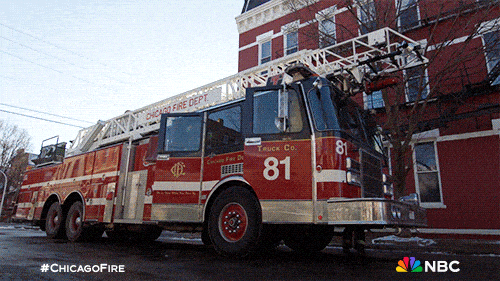- MindWatch
- Posts
- The Silent Uniform
The Silent Uniform
Why first responders stay quiet 🚒🚓🚑🚁

A recent report out of Oklahoma said what some already know. Many first responders would rather suffer in silence than risk losing their jobs or face added stigma.

According to a recent report by KOCO News 5 in Oklahoma, officers are hesitant to ask for help with their mental health because they’re afraid it will be used against them. It highlighted that some responders experience an average of 180 traumatic incidents over a longer career.
One captain from the Oklahoma County Sheriff’s Office said:
“It has always been looked at like, well if I say something or I tell them I’m having trouble with this, well I’ll just get taken off the street.”
They’ve seen things no one should have to see.
Mangled kids. Burned bodies. Murder. And much, much more.
But they don’t talk about it. Stigma creates a deafening silence.
One of the most comprehensive reports in recent months was the New York State First Responder Mental Health Needs Assessment Report. I highly recommend clicking the link below.
It can be reviewed here.
Not surprisingly, the NY report attests that the primary barrier for first responders accessing care is stigma.
I’ve worked with first responders on a weekly basis for years in my private practice. By and large, many of them are resilient, mentally tough, and their ability to compartmentalize is bar none. But those that serve a long time or serve in particularly acute areas, the traumatic level of stress can begin to take hold.
“I didn’t want to be the guy who couldn’t handle it” is the theme from many I’ve worked with.
That fear — of looking weak, of being pulled from duty, of being judged — keeps a lot of people quiet.
And suffering.
This doesn’t just happen in police departments🚔. You’ll find it in firehouses 👨🚒, ambulance bays🚑, dispatch centers. Anywhere people are trained to run toward the chaos.
You learn fast what not to say.
You crack jokes to cope with being around violence and death. You bottle it up.
You swallow the pain and hope it stays down. And part of that coping is usually adaptive and helpful to do the job. Being able to stay regulated at that stress level requires significant and extremely emotionally-taxing methods.
But it doesn’t stay bottled up over time.
The Cost of Silence
First responders are still more likely to die by suicide than in the line of duty.
Take that in for a minute. Despite all the dangers of being in the line of fire, suicide is still king when it comes to mortality rate.
Rates of depression, PTSD, and substance use are rising.
Families are breaking under the weight of it all.
And silence is still the norm.
What Actually Needs to Change
We don’t need another speech about resilience.
We need permission to feel. We need clinicians and helpers who are trained in first responder culture, people who will accompany police on ride-a-longs (for the few departments that still offer this), people who will support their local firehouse and EMS with their time and money.
We need systems that make space for grief, pain, and recovery — not just performance and toughness.
If you’re in the uniform:
- Feeling it doesn’t make you weak. It makes you human.
- You’re not alone. Confidential and competent help exists, even if no one tells you that. Speaking up could save your life, or someone else’s.
If you’re not in the uniform:
- Don’t glorify the silence.
- Fund real mental health support.
- And when someone finally answers, listen without judgment.
Make culturally competent help more systemically available.
Silence might feel like part of the uniform.
But it shouldn’t be.
Thanks for coming along this journey!
Until next week on Friday around 9:00am, come back…be here.
Keith
